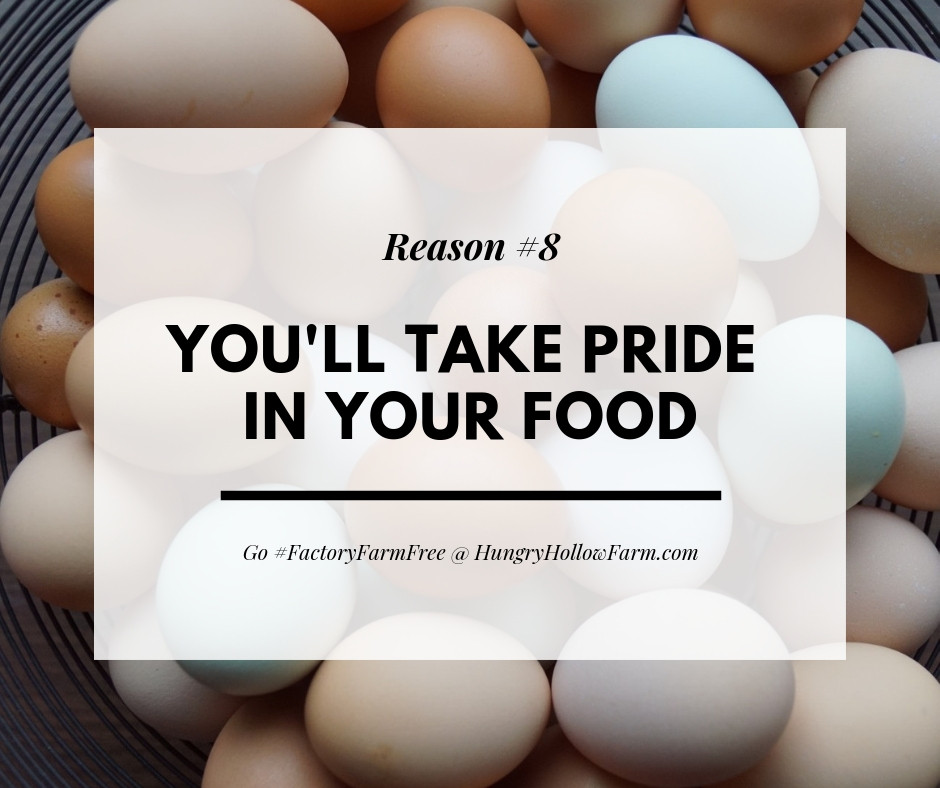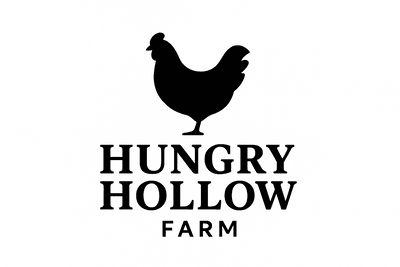
I don't have children, but if I did I would have a really hard time explaining factory farming to them. It's not something anyone I know would be proud of. This can be thought of as the "psychological price" of factory farms. Conversely, sourcing food from responsible farms comes with a "psychological bonus." There's something calming and deeply rewarding about knowing the entire story of your animals: how they were raised; how their manure enriched the soil and contributed to a more vibrant ecosystem the next year; how the natural diet they ate let them live healthy, active lives; how they died quickly with minimal stress and were locally butchered, ultimately ending up on your table to nourish your family so the cycle of regeneration can continue.
About Hungry Hollow
Hungry Hollow is a diversified farm in Shelton, WA producing pasture-raised meat, eggs, and vegetables in harmony with nature. Our practices regenerate the land, nourish our community, and model an alternative to factory farming that is rooted in joy, transparency, and reverence for life.
We envision a world where animals roam on pastures, farmers are nurturers not exploiters, and every bite of food helps restore the planet. Our work is a celebration of what farming can be when guided by empathy and ecological wisdom.
This is what farming should look like.
